The following speakers are scheduled to present at the Microplastics Health Effects Webinar Series, a five-part series scheduled for October 19, 2020-November 16, 2020:
Jonathan Bishop
 Jonathan Bishop has served as Chief Deputy Director at the State Water Board since 2007, where he oversees the Division of Water Quality and the Division of Financial Assistance, among other responsibilities. Previously, he worked for the Los Angeles Regional Water Quality Control Board for 23 years and was named its Executive Officer in 2004. At the Los Angeles Regional Board, he developed a new program to investigate the sources of groundwater contamination impacting drinking water wells, created a comprehensive water quality data management system, and oversaw the adoption of the first urban trash TMDL in the nation. Jon received a B.S. in Environmental Engineering with an emphasis in water quality from Humboldt State University.
Jonathan Bishop has served as Chief Deputy Director at the State Water Board since 2007, where he oversees the Division of Water Quality and the Division of Financial Assistance, among other responsibilities. Previously, he worked for the Los Angeles Regional Water Quality Control Board for 23 years and was named its Executive Officer in 2004. At the Los Angeles Regional Board, he developed a new program to investigate the sources of groundwater contamination impacting drinking water wells, created a comprehensive water quality data management system, and oversaw the adoption of the first urban trash TMDL in the nation. Jon received a B.S. in Environmental Engineering with an emphasis in water quality from Humboldt State University.
Dr. Hans Bouwmeester
 Dr. Hans Bouwmeester is an Associate Professor and toxicologist in the Department of Agrotechnology and Food Sciences at Wageningen University in the Netherlands. Hans has been studying the effects of nanoparticles for over a decade using a combination of in vitro and biokinetic models. Much of Hans’ research focuses on how different chemical properties influence particle uptake, transport and toxicity following ingestion. Hans received his Ph.D. from Utrecht Medical Center in the Netherlands.
Dr. Hans Bouwmeester is an Associate Professor and toxicologist in the Department of Agrotechnology and Food Sciences at Wageningen University in the Netherlands. Hans has been studying the effects of nanoparticles for over a decade using a combination of in vitro and biokinetic models. Much of Hans’ research focuses on how different chemical properties influence particle uptake, transport and toxicity following ingestion. Hans received his Ph.D. from Utrecht Medical Center in the Netherlands.
Recent publications of interest:
- Abdelkhaliq, A., van der Zande, M., Undas, A. K., Peters, R. J. B., & Bouwmeester, H. (2020). Impact of in vitro digestion on gastrointestinal fate and uptake of silver nanoparticles with different surface modifications. Nanotoxicology, 14(1), 111-126. doi:10.1080/17435390.2019.1675794.
- Abdelkhaliq, A., van der Zande, M., Punt, A., Helsdingen, R., Boeren, S., Vervoort, J. J. M., . . . Bouwmeester, H. (2018). Impact of nanoparticle surface functionalization on the protein corona and cellular adhesion, uptake and transport. J Nanobiotechnology, 16(1), 70. doi:10.1186/s12951-018-0394-6.
Dr. Susanne Brander
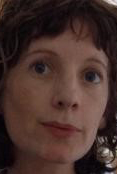 Dr. Susanne Brander is an Assistant Professor at Oregon State University where her laboratory focuses on connecting molecular responses to environmental contaminants to whole organism and population level effects. While the scope of her research encompasses a wide variety of topics within environmental toxicology, her current projects related to microplastics include investigating the occurrence of microplastics in native species along the West Coast. Susanne’s lab, in collaboration with Dr. Stacy Harper (Associate Professor, OSU), was recently awarded a $3.3 million grant from the National Science Foundation to study the effects of microplastics in aquatic organisms.
Dr. Susanne Brander is an Assistant Professor at Oregon State University where her laboratory focuses on connecting molecular responses to environmental contaminants to whole organism and population level effects. While the scope of her research encompasses a wide variety of topics within environmental toxicology, her current projects related to microplastics include investigating the occurrence of microplastics in native species along the West Coast. Susanne’s lab, in collaboration with Dr. Stacy Harper (Associate Professor, OSU), was recently awarded a $3.3 million grant from the National Science Foundation to study the effects of microplastics in aquatic organisms.
Recent publications of interest:
- Granek, E. F., Brander, S. M., & Holland, E. B. (2020). Microplastics in aquatic organisms: Improving understanding and identifying research directions for the next decade. Limnology and Oceanography Letters, 5(1), 1-4. doi:10.1002/lol2.10145.
- Baechler, B. R., Stienbarger, C. D., Horn, D. A., Joseph, J., Taylor, A. R., Granek, E. F., & Brander, S. M. (2019). Microplastic occurrence and effects in commercially harvested North American finfish and shellfish: Current knowledge and future directions. Limnology and Oceanography Letters, 5(1), 113-136. doi:10.1002/lol2.10122.
Dr. Scott Coffin
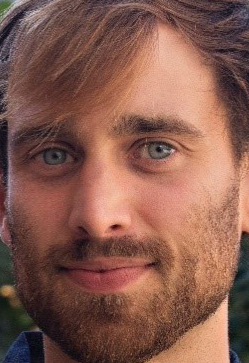 Dr. Scott Coffin is a Research Scientist III for the California State Water Resources Control Board’s Division of Drinking Water. He works in the Regulatory Development Unit, where he serves as the technical lead for California’s efforts regarding microplastics in drinking water. In 2020, Scott led the State Water Board’s efforts to develop an official definition of microplastics that was unanimously adopted by the State Water Board in June 2020. Scott completed his Ph.D. in Environmental Toxicology in 2018 at the University of California, Riverside, where his research focused on plastic as a vector for contaminants to estuarine biota.
Dr. Scott Coffin is a Research Scientist III for the California State Water Resources Control Board’s Division of Drinking Water. He works in the Regulatory Development Unit, where he serves as the technical lead for California’s efforts regarding microplastics in drinking water. In 2020, Scott led the State Water Board’s efforts to develop an official definition of microplastics that was unanimously adopted by the State Water Board in June 2020. Scott completed his Ph.D. in Environmental Toxicology in 2018 at the University of California, Riverside, where his research focused on plastic as a vector for contaminants to estuarine biota.
Recent publications of interest:
- Coffin, S., Magnuson, J. T., Vliet, S. M. F., Volz, D. C., & Schlenk, D. (2020). Effects of short-term exposure to environmentally-relevant concentrations of benzo(a)pyrene-sorbed polystyrene to White seabass (Atractoscion nobilis). Environmental Pollution, 263, 114617. doi:10.1016/j.envpol.2020.114617
- Coffin, S., Huang, G. Y., Lee, I., & Schlenk, D. (2019). Fish and Seabird Gut Conditions Enhance Desorption of Estrogenic Chemicals from Commonly-Ingested Plastic Items. Environ Sci Technol, 53(8), 4588-4599. doi:10.1021/acs.est.8b07140.
Dr. Matthew Cole
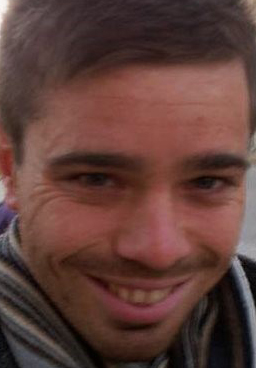 Dr. Matthew Cole is a Marine Ecologist and Ecotoxicologist at Plymouth Marine Laboratory and has been studying the effects microplastics for the past 10 years. The majority of his work is centered around the effects of microplastics in aquatic invertebrates, mainly copepods. In 2018, Matthew and his colleagues from Plymouth Marine Laboratory, the University of Plymouth and the University of Exeter received the Societal Impact Award from the Natural Environment Research Council, the United Kingdom’s largest funder of independent environmental science. Recently, his research has focused on the effects of antifouling paint particles on coastal and estuarine ecosystems, the risks microplastics pose to marine food security, and ecological solutions to plastic pollution.
Dr. Matthew Cole is a Marine Ecologist and Ecotoxicologist at Plymouth Marine Laboratory and has been studying the effects microplastics for the past 10 years. The majority of his work is centered around the effects of microplastics in aquatic invertebrates, mainly copepods. In 2018, Matthew and his colleagues from Plymouth Marine Laboratory, the University of Plymouth and the University of Exeter received the Societal Impact Award from the Natural Environment Research Council, the United Kingdom’s largest funder of independent environmental science. Recently, his research has focused on the effects of antifouling paint particles on coastal and estuarine ecosystems, the risks microplastics pose to marine food security, and ecological solutions to plastic pollution.
Recent publications of interest:
- Cole, M., Coppock, R., Lindeque, P. K., Altin, D., Reed, S., Pond, D. W., . . . Booth, A. M. (2019). Effects of Nylon Microplastic on Feeding, Lipid Accumulation, and Moulting in a Coldwater Copepod. Environ Sci Technol, 53(12), 7075-7082. doi:10.1021/acs.est.9b01853.
- Muller-Karanassos, C., Turner, A., Arundel, W., Vance, T., Lindeque, P. K., & Cole, M. (2019). Antifouling paint particles in intertidal estuarine sediments from southwest England and their ingestion by the harbour ragworm, Hediste diversicolor. Environ Pollut, 249, 163-170. doi:10.1016/j.envpol.2019.03.009.
Dr. Tamara Galloway
 Dr. Tamara Galloway is a Professor of Ecotoxicology at the University of Exeter in the U.K. Tamara has spent the majority of her career studying the effects of micro and nanoplastics on marine organisms, and is a recognized world leader in the field. Some of her most influential work demonstrated the ingestion of microplastics by lower trophic organisms such as zooplankton and bivalves. When these organisms are preyed upon, these plastics may then be transported throughout the marine food web. In 2018, Tamara and her colleagues from Plymouth Marine Laboratory, the University of Plymouth and the University of Exeter received the Societal Impact Award from the Natural Environment Research Council, the United Kingdom’s largest funder of independent environmental science. In 2019, Tamara was appointed an Officer of the Order of the British Empire as recognition for her scientific contributions.
Dr. Tamara Galloway is a Professor of Ecotoxicology at the University of Exeter in the U.K. Tamara has spent the majority of her career studying the effects of micro and nanoplastics on marine organisms, and is a recognized world leader in the field. Some of her most influential work demonstrated the ingestion of microplastics by lower trophic organisms such as zooplankton and bivalves. When these organisms are preyed upon, these plastics may then be transported throughout the marine food web. In 2018, Tamara and her colleagues from Plymouth Marine Laboratory, the University of Plymouth and the University of Exeter received the Societal Impact Award from the Natural Environment Research Council, the United Kingdom’s largest funder of independent environmental science. In 2019, Tamara was appointed an Officer of the Order of the British Empire as recognition for her scientific contributions.
Recent publications of interest:
- Cole, M., Liddle, C., Consolandi, G., Drago, C., Hird, C., Lindeque, P. K., & Galloway, T. S. (2020). Microplastics, microfibres and nanoplastics cause variable sub-lethal responses in mussels (Mytilus spp.). Mar Pollut Bull, 160, 111552. doi:10.1016/j.marpolbul.2020.111552.
- Nelms, S. E., Galloway, T. S., Godley, B. J., Jarvis, D. S., & Lindeque, P. K. (2018). Investigating microplastic trophic transfer in marine top predators. Environ Pollut, 238, 999-1007. doi:10.1016/j.envpol.2018.02.016.
Dr. Mark Gold
 Dr. Mark Gold is Executive Director for the California Ocean Protection Council and Deputy Secretary of Ocean and Coastal Policy for the California Natural Resources Agency. In this role, Mark serves as a key advisor to the California Governor and the Secretary of Natural Resources, and directs policy, scientific research and partnerships to increase protection of coastal and ocean resources in California. Prior to his appointment, he was Associate Vice Chancellor for Environment and Sustainability at the University of California, Los Angeles, where he led the Sustainable Los Angeles Grand Challenge effort. Prior to UCLA, Mark was the first hire at the environmental nonprofit Heal the Bay and served as the group’s President for 18 years. During that time, he worked on ocean and coastal legislation and policy, stormwater, watershed management, and marine conservation and coastal restoration issues, projects and programs. Over the course of his career, his research focused on beach water quality and health risks, as well as sustainable water resources management. Mark received his B.S. and M.S. in Biology, and Doctorate in Environmental Science and Engineering, all from UCLA.
Dr. Mark Gold is Executive Director for the California Ocean Protection Council and Deputy Secretary of Ocean and Coastal Policy for the California Natural Resources Agency. In this role, Mark serves as a key advisor to the California Governor and the Secretary of Natural Resources, and directs policy, scientific research and partnerships to increase protection of coastal and ocean resources in California. Prior to his appointment, he was Associate Vice Chancellor for Environment and Sustainability at the University of California, Los Angeles, where he led the Sustainable Los Angeles Grand Challenge effort. Prior to UCLA, Mark was the first hire at the environmental nonprofit Heal the Bay and served as the group’s President for 18 years. During that time, he worked on ocean and coastal legislation and policy, stormwater, watershed management, and marine conservation and coastal restoration issues, projects and programs. Over the course of his career, his research focused on beach water quality and health risks, as well as sustainable water resources management. Mark received his B.S. and M.S. in Biology, and Doctorate in Environmental Science and Engineering, all from UCLA.
Dr. Todd Gouin
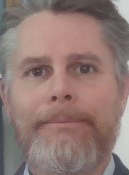 Dr. Todd Gouin is a research consultant who specializes in, among other things, the development and application of risk assessment methods for particulates, such as microplastic particles, nanomaterials, and UVCBs, as well as the development and application of models to better assess chemical exposure for both humans and the environment. He possesses both experimental and modelling experience in assessing diverse chemical exposures, including current-use pesticides in Costa Rica and polycyclic aromatic hydrocarbons in the Arctic regions of Alaska. He was previously employed for eight years by Unilever, where he was involved in the development and application of tools aimed at screening and prioritization of chemicals and higher-tier risk assessment methods. He received a Ph.D. in environmental chemistry from Trent University in Canada in 2006.
Dr. Todd Gouin is a research consultant who specializes in, among other things, the development and application of risk assessment methods for particulates, such as microplastic particles, nanomaterials, and UVCBs, as well as the development and application of models to better assess chemical exposure for both humans and the environment. He possesses both experimental and modelling experience in assessing diverse chemical exposures, including current-use pesticides in Costa Rica and polycyclic aromatic hydrocarbons in the Arctic regions of Alaska. He was previously employed for eight years by Unilever, where he was involved in the development and application of tools aimed at screening and prioritization of chemicals and higher-tier risk assessment methods. He received a Ph.D. in environmental chemistry from Trent University in Canada in 2006.
Recent publications of interest:
- Gouin, T. (2020). Toward an Improved Understanding of the Ingestion and Trophic Transfer of Microplastic Particles: Critical Review and Implications for Future Research. Environ Toxicol Chem, 39(6), 1119-1137. doi:10.1002/etc.4718.
- Gouin, T., Becker, R. A., Collot, A. G., Davis, J. W., Howard, B., Inawaka, K., . . . Hopp, P. W. (2019). Toward the Development and Application of an Environmental Risk Assessment Framework for Microplastic. Environ Toxicol Chem, 38(10), 2087-2100. doi:10.1002/etc.4529.
Dr. Bart Koelmans
 Dr. Bart Koelmans is an environmental chemist and ecotoxicologist by training who heads the Aquatic Ecology and Water Quality Department at Wageningen University. In the field of plastic research, his group aims to bridge the gap between conceptual and empirical approaches to obtain a mechanistic understanding of the risks of microplastic for human health and the environment. Bart is a global highly cited researcher (Clarivate analytics), advises international organizations like the World Health Organization, led international working groups about risks of plastic pollution, such as the European Commission’s Science Advice for Policy by European Academies (SAPEA) expert group on Microplastics in Nature and Society, and is Editor-in-Chief of the new journal Microplastics and Nanoplastics.
Dr. Bart Koelmans is an environmental chemist and ecotoxicologist by training who heads the Aquatic Ecology and Water Quality Department at Wageningen University. In the field of plastic research, his group aims to bridge the gap between conceptual and empirical approaches to obtain a mechanistic understanding of the risks of microplastic for human health and the environment. Bart is a global highly cited researcher (Clarivate analytics), advises international organizations like the World Health Organization, led international working groups about risks of plastic pollution, such as the European Commission’s Science Advice for Policy by European Academies (SAPEA) expert group on Microplastics in Nature and Society, and is Editor-in-Chief of the new journal Microplastics and Nanoplastics.
Recent publications of interest:
- Redondo-Hasselerharm, P., Gort, G., Peeters, E., & Koelmans, A. (2020). Nano-and microplastics affect the composition of freshwater benthic communities in the long term. Science advances, 6(5), eaay4054. doi:10.1126/sciadv.aay4054.
- Kooi, M., & Koelmans, A. A. (2019). Simplifying Microplastic via Continuous Probability Distributions for Size, Shape, and Density. Environmental Science & Technology Letters, 6(9), 551-557. doi:10.1021/acs.estlett.9b00379.
Christine Lemieux
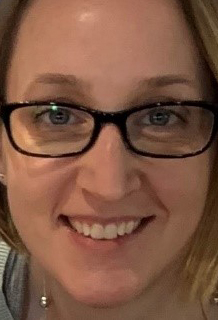 Christine Lemieux is a senior evaluator and biologist in the Water and Air Quality Bureau of Health Canada. The technical lead for Health Canada’s initiatives on plastic pollution, Christine recently co-led the development of Canada’s Science Assessment of Plastic Pollution, the report that provides the scientific backdrop for risk management actions on plastic pollution in Canada. She has also provided advice and co-authored World Health Organization reports on microplastics. She has over 15 years of experience in human health risk assessment, working in areas such as drinking water regulation, nanomaterials and complex mixtures. Christine has a B.Sc. in biochemistry and biotechnology and an M.Sc. in biology from Carleton University.
Christine Lemieux is a senior evaluator and biologist in the Water and Air Quality Bureau of Health Canada. The technical lead for Health Canada’s initiatives on plastic pollution, Christine recently co-led the development of Canada’s Science Assessment of Plastic Pollution, the report that provides the scientific backdrop for risk management actions on plastic pollution in Canada. She has also provided advice and co-authored World Health Organization reports on microplastics. She has over 15 years of experience in human health risk assessment, working in areas such as drinking water regulation, nanomaterials and complex mixtures. Christine has a B.Sc. in biochemistry and biotechnology and an M.Sc. in biology from Carleton University.
Recent publications of interest:
Dr. Chelsea Rochman
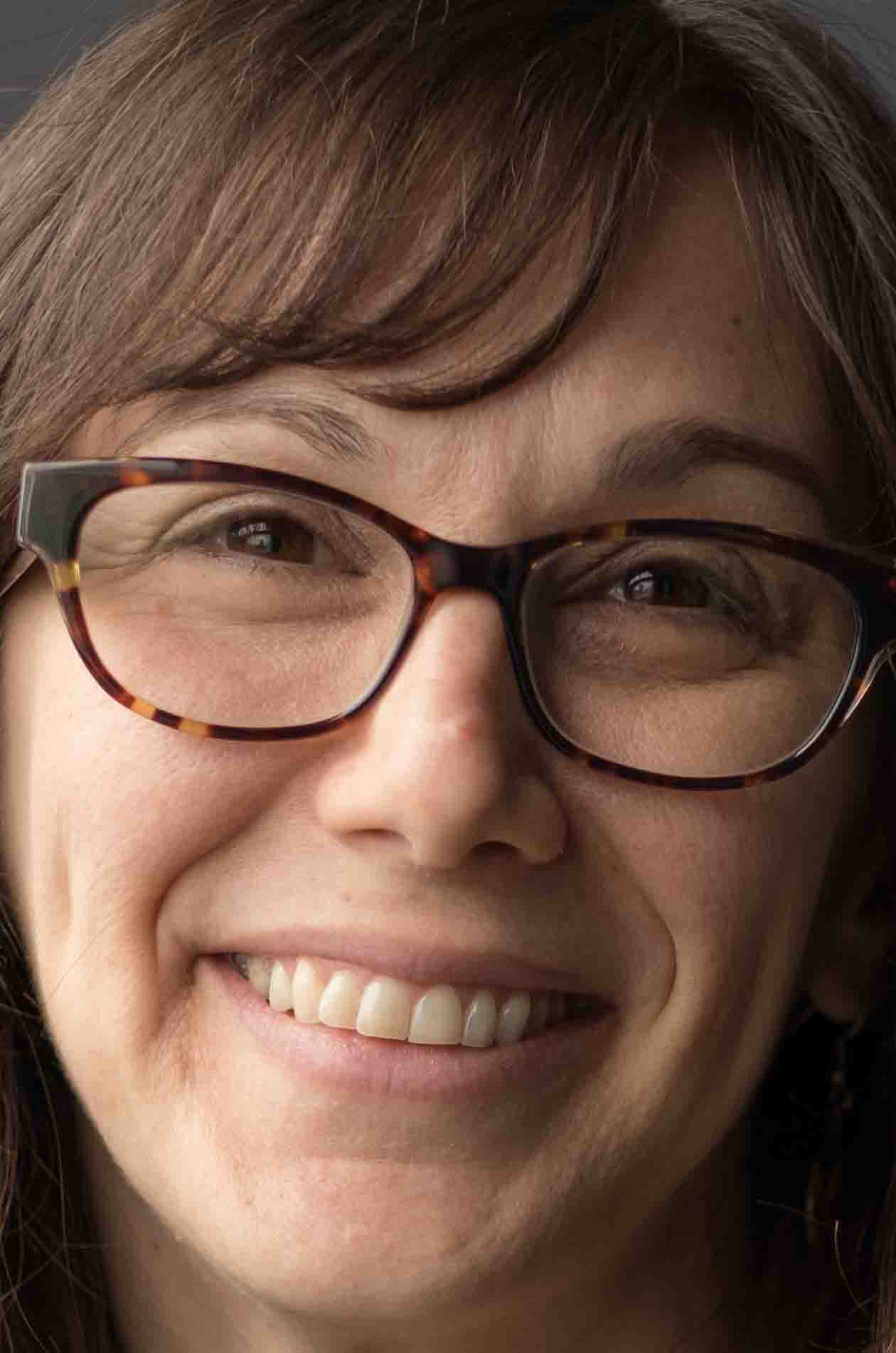 Dr. Chelsea Rochman is an Assistant Professor of Ecology at the University of Toronto and a scientific advisor to the Ocean Conservancy. Chelsea has been researching the sources, sinks and ecological implications of microplastic debris in marine and freshwater habitats for more than a decade. Chelsea’s research includes the ability of microplastics to cause physical stress or induce toxicity by leaching harmful chemicals either added during manufacturing or sorbed on the surface of plastics in the environment. She has published dozens of scientific papers in respected journals and has led international working groups about plastic pollution. Chelsea has presented her work to the United Nations General Assembly and the U.S. State Department.
Dr. Chelsea Rochman is an Assistant Professor of Ecology at the University of Toronto and a scientific advisor to the Ocean Conservancy. Chelsea has been researching the sources, sinks and ecological implications of microplastic debris in marine and freshwater habitats for more than a decade. Chelsea’s research includes the ability of microplastics to cause physical stress or induce toxicity by leaching harmful chemicals either added during manufacturing or sorbed on the surface of plastics in the environment. She has published dozens of scientific papers in respected journals and has led international working groups about plastic pollution. Chelsea has presented her work to the United Nations General Assembly and the U.S. State Department.
Recent publications of interest:
- Kolomijeca, A., Parrott, J., Khan, H., Shires, K., Clarence, S., Sullivan, C., . . . Rochman, C. M. (2020). Increased Temperature and Turbulence Alter the Effects of Leachates from Tire Particles on Fathead Minnow (Pimephales promelas). Environ Sci Technol, 54(3), 1750-1759. doi:10.1021/acs.est.9b05994.
- Bucci, K., Tulio, M., & Rochman, C. (2020). What is known and unknown about the effects of plastic pollution: A meta‐analysis and systematic review. Ecological Applications, e02044.
Dr. Lisa Scheuermann
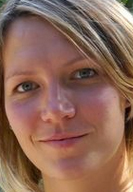 Dr. Lisa Scheuermann is a technical officer of the World Health Organization (WHO) in Geneva, Switzerland. In conjunction with an international panel of experts, Lisa helped craft a milestone report summarizing the known occurrence and potential human health effects of microplastics in drinking water. From this experience, Lisa brings valuable knowledge regarding international efforts to synthesize exist data and identify research needs. Lisa received her Ph.D. from the Max Planck Institute for Infection Biology in Germany.
Dr. Lisa Scheuermann is a technical officer of the World Health Organization (WHO) in Geneva, Switzerland. In conjunction with an international panel of experts, Lisa helped craft a milestone report summarizing the known occurrence and potential human health effects of microplastics in drinking water. From this experience, Lisa brings valuable knowledge regarding international efforts to synthesize exist data and identify research needs. Lisa received her Ph.D. from the Max Planck Institute for Infection Biology in Germany.
Recent publications of interest:
Dr. Valerie Stock
 Dr. Valerie Stock has been working in the field of nanotoxicology since starting her doctorate at the German Federal Institute for Risk Assessment in 2017. She specializes in the investigation of micro- and nanoplastics toxicity after oral uptake. Her work focuses on the quantification of particle uptake at the intestinal barrier in vivo and in vitro, as well as on various toxicological endpoints such as oxidative stress, lysosomal disorder and apoptosis. Valerie studied biology and toxicology at the Free University and Charité University Medicine in Berlin.
Dr. Valerie Stock has been working in the field of nanotoxicology since starting her doctorate at the German Federal Institute for Risk Assessment in 2017. She specializes in the investigation of micro- and nanoplastics toxicity after oral uptake. Her work focuses on the quantification of particle uptake at the intestinal barrier in vivo and in vitro, as well as on various toxicological endpoints such as oxidative stress, lysosomal disorder and apoptosis. Valerie studied biology and toxicology at the Free University and Charité University Medicine in Berlin.
Recent publications of interest:
- Stock, V., Bohmert, L., Lisicki, E., Block, R., Cara-Carmona, J., Pack, L. K., . . . Lampen, A. (2019). Uptake and effects of orally ingested polystyrene microplastic particles in vitro and in vivo. Arch Toxicol, 93(7), 1817-1833. doi:10.1007/s00204-019-02478-7.
- Stock, V., Fahrenson, C., Thuenemann, A., Donmez, M. H., Voss, L., Bohmert, L., . . . Sieg, H. (2020). Impact of artificial digestion on the sizes and shapes of microplastic particles. Food Chem Toxicol, 135, 111010. doi:10.1016/j.fct.2019.111010
Dr. Martin Wagner
 Dr. Martin Wagner is an Associate Professor of Environmental Toxicology at the Norwegian University for Science and Technology in Trondheim, where his laboratory studies the effects of plastics and plastic-associated chemicals on both human and environmental health. Martin’s research group uses in vivo and in vitro bioassays to characterize the impacts of plastics and identify the chemicals that cause toxicity. Much of Martin’s research is centered around the endocrine-disrupting effects of chemicals that leach from plastics and microplastics in freshwater systems.
Dr. Martin Wagner is an Associate Professor of Environmental Toxicology at the Norwegian University for Science and Technology in Trondheim, where his laboratory studies the effects of plastics and plastic-associated chemicals on both human and environmental health. Martin’s research group uses in vivo and in vitro bioassays to characterize the impacts of plastics and identify the chemicals that cause toxicity. Much of Martin’s research is centered around the endocrine-disrupting effects of chemicals that leach from plastics and microplastics in freshwater systems.
Recent publications of interest:
- Zimmermann, L., Dierkes, G., Ternes, T. A., Volker, C., & Wagner, M. (2019). Benchmarking the in Vitro Toxicity and Chemical Composition of Plastic Consumer Products. Environ Sci Technol, 53(19), 11467-11477. doi:10.1021/acs.est.9b02293.
- Schur, C., Zipp, S., Thalau, T., & Wagner, M. (2020). Microplastics but not natural particles induce multigenerational effects in Daphnia magna. Environ Pollut, 260, 113904. doi:10.1016/j.envpol.2019.113904.
Dr. Stephanie Wright
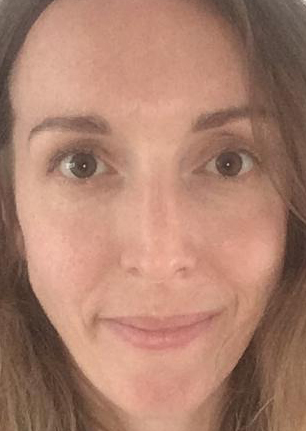 Dr. Stephanie Wright is a Lecturer at the Medical Research Council’s Centre for Environment and Health, which is held jointly between King’s College London and Imperial College London. As a UK Research and Innovation Rutherford Fellow, Stephanie leads the Microplastics team, where her interdisciplinary research addresses microplastic detection, characterization and quantification in the atmospheric environment; optimization of techniques for the detection of microplastics in biological matrices; and toxicological assessment of microplastics using in vitro models of the human airway. She has over 9 years’ research experience in both microplastics exposure and biological impacts, with an emphasis on airborne plastic pollution. She has been on national TV and radio as a guest expert, participated in a European Commission microplastics working group, and contributed to policy change discussions. She holds a Ph.D. from the University of Exeter.
Dr. Stephanie Wright is a Lecturer at the Medical Research Council’s Centre for Environment and Health, which is held jointly between King’s College London and Imperial College London. As a UK Research and Innovation Rutherford Fellow, Stephanie leads the Microplastics team, where her interdisciplinary research addresses microplastic detection, characterization and quantification in the atmospheric environment; optimization of techniques for the detection of microplastics in biological matrices; and toxicological assessment of microplastics using in vitro models of the human airway. She has over 9 years’ research experience in both microplastics exposure and biological impacts, with an emphasis on airborne plastic pollution. She has been on national TV and radio as a guest expert, participated in a European Commission microplastics working group, and contributed to policy change discussions. She holds a Ph.D. from the University of Exeter.
Recent publications of interest:
- Wright, S. L., Ulke, J., Font, A., Chan, K. L. A., & Kelly, F. J. (2020). Atmospheric microplastic deposition in an urban environment and an evaluation of transport. Environ Int, 136, 105411. doi:10.1016/j.envint.2019.105411.
- Wright, S. L., & Kelly, F. J. (2017). Plastic and Human Health: A Micro Issue? Environ Sci Technol, 51(12), 6634-6647. doi:10.1021/acs.est.7b00423
Contact
To request full-text copies of the publications listed above, and for other questions about this symposium, contact Dr. Leah Thornton Hampton.